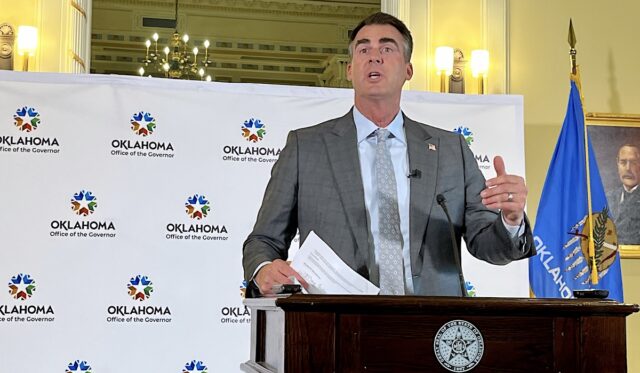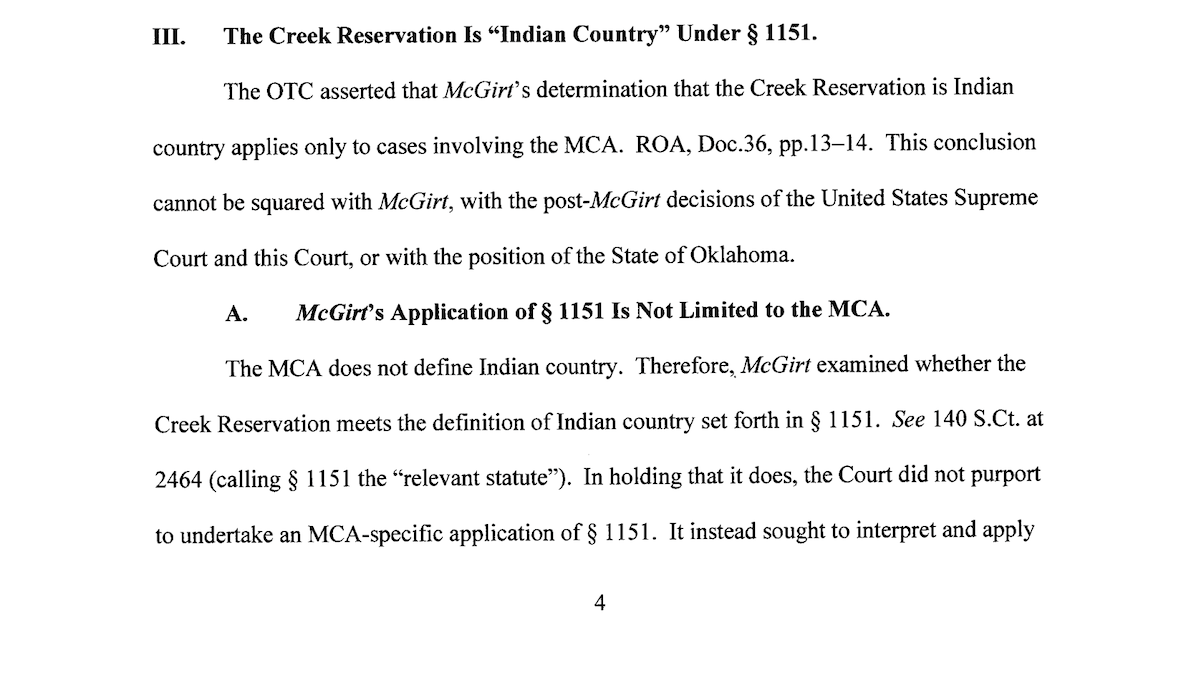
As his legal team waits for the Oklahoma Supreme Court to decide a case that could affirm state income tax exemption for tens of thousands of tribal citizens, Gov. Kevin Stitt called a special session of the Legislature this afternoon to consider three proposals for “fairness and transparency in our tax system and our budget process.”
Since Stitt took office in 2019, the Oklahoma Legislature has convened for several special sessions, some of which the governor has called to press lawmakers on tax policy and some of which the Legislature has called to limit Stitt’s influence in budget matters.
As this year’s regular legislative session neared its late-May conclusion, lawmakers called a concurrent special session to hear budget bills and guarantee themselves the opportunity to override gubernatorial vetoes. Although the special session and veto override attempts unfolded in fits and starts, the Legislature’s tactic ultimately allowed a pair of bills extending state-tribal compacts on tobacco and motor vehicle licensure to pass July 31 despite the governor’s objections.
Stitt immediately asked the Oklahoma Supreme Court to invalidate SB 26X‘s extension of the tobacco compacts, and his request is pending after legislative leaders responded and the governor responded to them.
Less than six weeks later, Stitt announced Monday that he would haul legislators back to the Capitol for consideration of three priorities, which appear below verbatim from the governor’s official executive order:
- To create a statutory trigger which automatically eliminates any tax assessed by the state or its political subdivisions if that same tax is found by a state or federal court to be inapplicable to any individual by virtue of their race, heritage, or political classification;
- To deliver Oklahomans a personal state income tax cut — one that puts the state on a pathway to zero personal state income taxes;
- To increase transparency in the legislative budget making process.
Stitt’s third item in his special session call included five bullet points, which appear verbatim below:
- Requirement that no general appropriations bill or spending limits bill shall be acted upon by the Legislature, or any committee thereof, without first being made publicly available for consideration in its final form for at least three legislative days;
- Provide statutory definitions for recurring revenue, non-recurring revenue, recurring expense and non-recurring expense;
- Require the designation of expenditure type and revenue source as recurring or non-recurring in any proposed legislation that involves the expenditure of any revenue, regardless of source;
- Require any legislatively directed spending be explicitly included in any general appropriations bill or spending limits bill; and
- Prohibit any member or employee of the Legislature from directly or indirectly attempting to influence agency expenditures outside of the legislative process.
In a press release, Stitt harkened back to his May 2022 special session call where he demanded that lawmakers cut taxes, which they ultimately did not do before adjourning.
“We have one job – to serve and protect all four million Oklahomans,” Stitt said Monday. “I’m calling on the Legislature to fight for Oklahomans and demand fairness and transparency in our tax system and our budget process. I am also calling on the Legislature to put Oklahoma on a path to zero income tax and give Oklahomans a much-needed tax break. If not now, when?”
House Speaker Charles McCall (R-Atoka) offered a short response to the governor’s decision.
“As the House has done before, we will answer the call of the Governor according to our constitutional duty.”
Senate President Pro Tempore Greg Treat (R-OKC) also released a short statement, noting that a full response would be “forthcoming.”
“Out of respect for the 9/11 remembrance, I am going to refrain from talking about politics today,” Treat said.
When Stitt called the Legislature into special session last year to consider eliminating the state portion of sales tax on groceries and other potential tax reductions, Treat said his Senate Republican Caucus would study the complicated topic and release a proposal for overhauling Oklahoma’s tax code. That did not happen, which drew ire from Stitt and some leading House Republicans this session.
Underscoring Stitt’s first bullet in his third priority for special session, GOP legislative leaders revealed many of their massive budget decisions in the final days of the 2023 regular session, a common occurrence that has routinely drawn criticism from Democrats and members of the public who often lack the opportunity to review significant financial proposals before they receive votes.
Court cases still pending as special session call drops
Stitt’s special session call comes roughly two weeks after McCall and Treat answered his July 31 petition for the Oklahoma Supreme Court to invalidate SB 26X‘s tribal tobacco compact extension. Over Stitt’s objection, the Cherokee Nation, Chickasaw Nation and Choctaw Nation filed an amicus curiae brief Aug. 24 supporting the legislative leaders and SB 26X.
Through attorney Glenn Coffee, McCall and Treat answered Stitt’s petition Aug. 28, and Attorney General Gentner Drummond filed a brief opposing Stitt’s position that SB 26X violated the state constitution. Stitt’s attorneys filed their rebuttal to both briefs two days later.
On Sept. 7, attorney Ryan Haynie with the Oklahoma Council of Public Affairs filed a request for the state Supreme Court to assume original jurisdiction and review SB 26X, which Haynie argues was “a revenue-raising bill” that “levies a tax in the strictest sense.” Article 5, Section 33 of the Oklahoma Constitution — approved by voters as State Question 640 in 1992 — requires revenue-raising measures to pass with supermajority support, be authored as House bills and not be considered within the final five days of session.
McCall and Treat are named as defendants in OCPA’s motion, but their response deadline has not arrived. However, the Supreme Court granted oral arguments on the petition for Wednesday, Oct. 4, the day after Stitt’s called special session is set to begin.
Meanwhile, Stitt, lawmakers and tribal leaders are still awaiting the Oklahoma Supreme Court to weigh arguments in the Stroble v. Oklahoma Tax Commission case, which asks whether tribal citizens who live within reservation boundaries and work for tribally controlled entities are exempt from state income tax.
RELATED
Stroble case asks OK Supreme Court to decide income tax rules on reservations by Katrina Crumbacher
If the Oklahoma Tax Commission prevails, it will bolster arguments that the eight reservations affirmed through the McGirt v. Oklahoma U.S. Supreme Court decision are limited in application to only criminal law. If Stroble prevails, it would be the second major affirmation that the reservations also exist for purposes of civil law, and it could exempt tens of thousands of additional tribal citizens from state income tax jurisdiction.
The looming Stroble case appears to have spurred Stitt’s special session call, at least partially, as its potential impact is referenced as justification for the first portion of his official call. Tribal leaders and members of the Oklahoma Legislature have floated potential changes to state law if the court rules that the Oklahoma Tax Commission cannot assess income tax on tribal citizens who live on reservations and derive their earnings from tribally controlled sources.
Those changes could include additional compacts between the state and tribes or an elimination of the state income tax, which Stitt proposed in his special session call Monday.






















